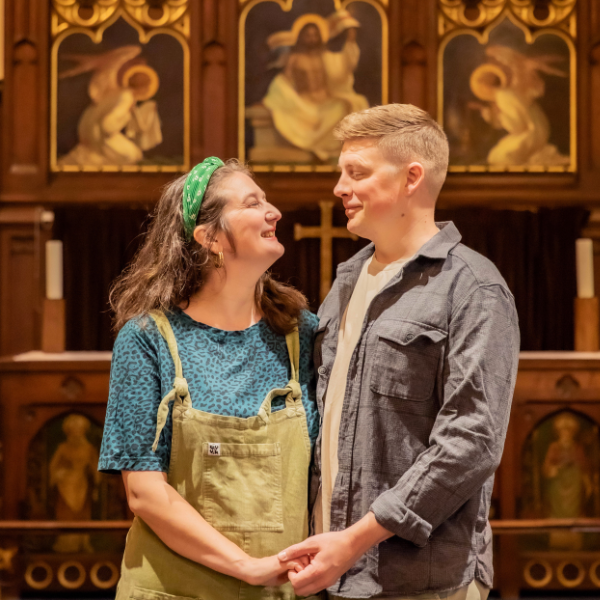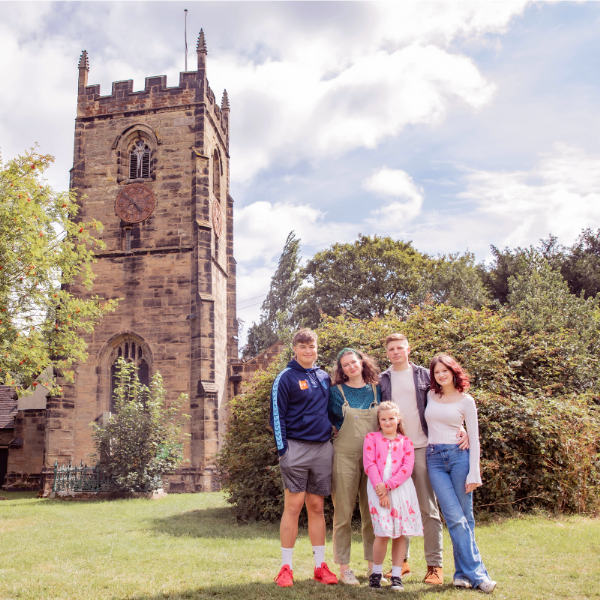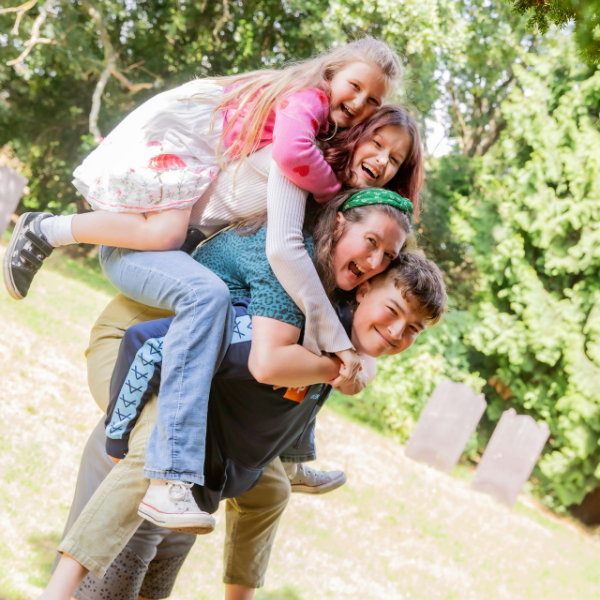The Revd Rebecca Henney is a curate at St Laurence's Church, Foleshill, and lives in Coventry with her husband, James, and three children, Theo, Matilda and Agatha.
When Matilda and Agatha both began to struggle at school, Becca was concerned, and thought her daughters may be neurodivergent. Through the NHS, the family faced a five-year waiting list for an assessment and diagnosis. If they went private, it would only be a two-month wait, but could cost upwards of £600 for an appointment.
We were privileged to be able to help, by providing a Health grant towards a child ADHD assessment, as well as an Occupational Therapy assessment to see how they could be best supported, through out service partner, The OT Practice.
Visiting Caseworkers
Our Visiting Caseworker Service Service helps households with more complex needs to make grant applications, while also working with them to access support from local authorities and other organisations, including Disability Living Allowance and Personal Independence Payments. Households are referred to the Service following assessment by our Charitable Services Team.
"We felt like there was a grown up in the room who knew what was happening, which is invaluable when you're a bit at sea and you're trying to do the best for your children, but you're not sure how to get there."
"Agatha in particular was really struggling with school, and the school just weren't equipped to deal with it. They didn't have any resource, or anything they could do for her. They just kept asking me what the nice lady at Clergy Support Trust was recommending."
"Having Lindsay's expertise, calming and reassuring us, helping us to navigate SEN (Special Educational Needs), a system that was completely alien to us, was just so helpful."
Since we reopened in January, we've received over 1,000 applications from households in need, just like Becca and her family.
This Lent, we invite you to set up a regular gift, in a spirit of care and shared responsibility. For many supporters, a monthly gift is a simple and manageable way to give - spreading generosity across the year while staying connected to the difference it makes.
Your regular gift could help:
- Provide assistive technology, restoring independence and dignity
- Cover the cost of an educational psychologist assessment
- Fund mental health support during times of crisis
- Enable access to physical therapies
Help us to journey alongside over 2,700 households each year, to support them with the challenges they face, at Lent and throughout the year.



